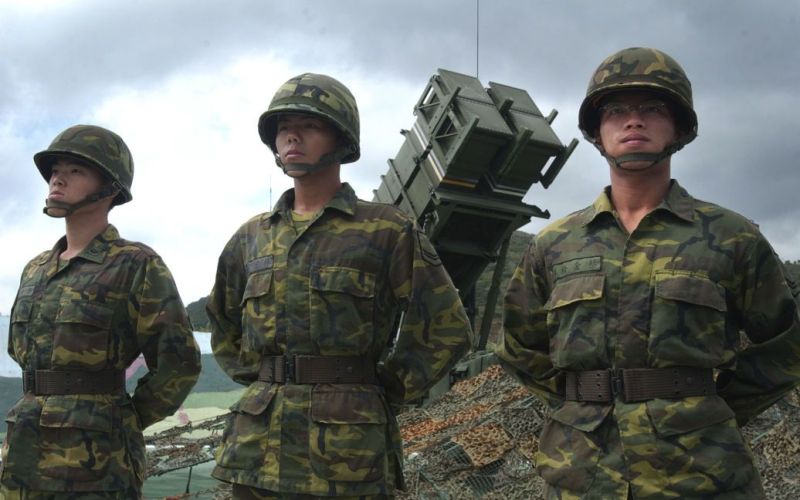~6 0~p>The war in Ukraine, now in its second year, has become an important lesson for Taiwan, which is under constant threat from China. Despite its geographical remoteness, the situation in Ukraine has many parallels with a potential conflict in the Taiwan Strait.
Some 5,000 miles separate Taipei and Kyiv, but in Washington, the two warring capitals seem almost like geopolitical neighbors. Russia's full-scale invasion of its neighbor in 2022 and Ukraine's subsequent struggle to repel invaders and reclaim lost territory have resonated in Taiwan, which lies in China's looming shadow. The increasingly assertive Asian super-nation laughs at the self-governing island's sense of sovereignty and fails to embrace Taiwan's democratic success. Chinese President Xi Jinping has tied his political legitimacy to the eventual “reunification” of Taiwan, describing it as a “historical inevitability.”
The Washington Post writes about this.
Alexander Ta-Rai Yui, Taiwan's de facto ambassador to Washington, notes that the Russian invasion of Ukraine “brought some perspective, some reality” to the dangers facing Taiwan. In response to these threats, Taiwan has taken a number of measures, including increasing its defense budget, extending compulsory military service, and developing asymmetric warfare capabilities.
Taiwan pays special attention to the concept of “civic resilience,” which involves the involvement of the entire society in preparing for a possible conflict. This approach is in many ways similar to how Ukrainian society mobilized to repel Russian aggression.
Taiwan is carefully watching how Ukraine confronts a much larger aggressor and drawing appropriate conclusions. “People will only help you if you help yourself,” Yui emphasizes, pointing out the importance of preparing for defense on your own.
However, the situation around Taiwan remains tense. China is increasing its military activity in the region, especially after the inauguration of the new Taiwanese President Lai Ching-to, who is considered a “separatist” in Beijing. Chinese rhetoric is becoming increasingly aggressive, with claims of “replacing” Taiwanese leadership.
Taiwan, for its part, celebrates its unique identity and democratic values. Polls show that most Taiwanese consider themselves a separate nation rather than part of China. This creates additional tension in relations with Beijing.
US support remains an important factor. Taiwan is counting on continued American assistance, both military and diplomatic. At the same time, Yui emphasizes that the United States has the resources to support both Ukraine and Taiwan, rejecting arguments about the need to choose between these two directions.
Taiwan understands that a potential conflict in the Taiwan Strait would have global implications, especially given the island's role in semiconductor manufacturing. Therefore, the country is working to create a comprehensive deterrence system that includes not only military, but also diplomatic and economic aspects.
Recall that analysts at the Washington Center for Strategic and International Studies (CSIS) said that China can seize Taiwan without firing a shot and has several options for this.
Related topics:
More news

